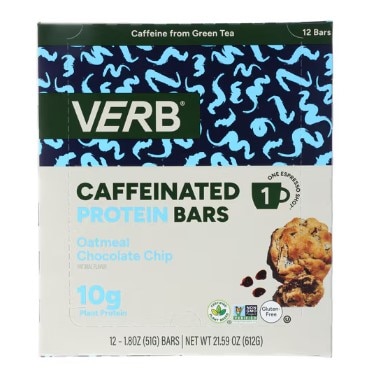Are you a fan of mixing up your cardio with a little weight training? Do you like to switch off running with Pilates or yoga with kick boxing? Then you’re a hybrid athlete! Did you know that hybrid training can help improve the different physical tasks that you complete on a regular basis? Or that it can reduce the chances of injury? Hybrid training is an old method that is getting a fresh reboot, so if you’re stuck in a runner’s rut or you’re getting bored of lifting weights, consider blending the two for added benefits.
What is Hybrid Training?
Exercise enthusiasts have been blending cardio with strength training for decades. What makes hybrid training so different? Alex Kirkup-Lee, a certified personal trainer and CrossFit coach explains that it is “essentially training across multiple disciplines to improve all-around performance. This usually refers to training to improve both strength and endurance simultaneously. While a powerlifter might avoid steady-state cardio and a marathon runner may flinch at the idea of a heavy bench session, hybrid athletes use a blend of training styles with the aim of improving all of them.”
CrossFit is a classic example. Within a single workout you perform resistance exercises like pull ups and deadlifts with aerobic moves such as box jumps or burpees. Another common form of hybrid training is alternating strength training workouts with either running or cycling across a week’s program.
4 Gains to Going Hybrid
Here’s 4 reasons why you should give it a shot if you haven’t already.
1. Can help you break out of fitness plateaus
Your body can quickly adapt to doing the same type of exercises over and over. But incorporating different moves in the same workout or on alternating days keeps your body on its toes, literally.
“In fact, a study [in the Journal of Positive School Psychology] concluded over a six-week period that strength and endurance training resulted in positive changes in terms of reduction in body fat and an increase in the participants’ muscle mass,” Kirkup-Lee explained.
2. Can reduce your risk of injury
Repetitive exercises can also lead to wear and tear on specific limbs over time. Shin splints, stress fractures and iliotibial (IT) band tears are typical injuries incurred by runners whereas back, neck and rotator cuff damage is more common amongst powerlifters. By incorporating both movements, less stress is placed on a wider range of joints.
“Training across various intensities, loads and distances has been shown to have multiple benefits amongst athletes such as greater physical outputs, resilience, and protection against injury,” Kirkup-Lee said.
3. Maximizes your time
Do you feel lucky if you have 60 minutes for physical activity? Hybrid training can make a big difference in your physical fitness! When you incorporate different exercise modalities in one workout, you can achieve multiple fitness goals in a shorter amount of time. Plus, studies show that blending resistance training with cardio in one session leads to a higher calorie expenditure compared to doing them separately.
“Hybrid training allows you to develop strength and endurance through a combined approach, potentially requiring less time training while still achieving [a plethora of] benefits,” Kirkup-Lee said.
4. Helps you prepare for all of life’s different demands
Combined movements are closer to functional fitness exercises which help you in routine tasks such as loading and unloading groceries, playing with your kids, moving furniture or cleaning your gutters.
“You can’t train for everything all the time,” Kirkup-Lee explained, “But by training across strength and endurance, you can be ready to enjoy what life throws at you, whether it’s a cycle ride with friends or a last-minute fitness competition entry.”
The Downside to Blended Movement
With so many benefits to blending different exercise styles, are there any negatives or weaknesses to this approach?
“Not dedicating yourself 100% to one discipline is not without its drawbacks,” Kirkup-Lee said. “In elite scenarios, the argument that placing a balanced emphasis on endurance and strength can have a negative impact is backed by various studies. But if, like most of us, you don’t compete at a high level in sport and simply want to be able to lift heavy and endure distances on foot or bike, then conditioning yourself with hybrid training may be a rewarding and motivating way to exercise.”
5 Key Aspects to a Successful Hybrid Training Program
If you’re ready to give hybrid training a try, but don’t know where to start, look no further.
Strength training is an essential element as it helps to build overall strength and muscle mass.
“Include a mixture of compound exercises,” Kirkup-Lee said. “Think the big key lifts [such as a] squat, bench [press] or deadlift that use several muscle groups simultaneously. And [add] accessory movements that hone in on specific muscle groups to further develop strength and address weaknesses.”
Running is one of the most minimal equipment exercises you can do, and it’s exceptionally adaptable, allowing you to tap into different heart zones and train for speed or endurance, depending on what you want to achieve.
“Aerobic training was previously thought to inhibit strength gains,” Kirkup-Lee said. “However, research has proved that cardio can support muscle growth and function, increasing overall fitness levels and reducing the risk of injury. Hybrid athletes practice both speed and endurance running disciplines, which, therefore, has positive benefits for both strength and functional training.”
Functional training incorporates movements that mimic everyday activities to improve your ability to function in day-to-day routine.
“This type of training does not focus specifically on training muscle groups but rather on movements that mimic what we do in everyday life,” Kirkup-Lee said. “Training these movements develops core stability, balance, coordination, speed and power – all of which are extremely transferrable to other sports and will make you a more well-rounded athlete.”
Flexibility makes a well-rounded hybrid athlete training program complete. You can improve your mobility through stretching specific muscles – such as doing dynamic stretches during your warmup or by using tools like foam rollers or stretch bands after your workout.
“Taking part in a focused mobility session, [such as] a yoga class, has [also] been shown to enhance strength and flexibility and reduce stress,” Kirkup-Lee said.
Rest and recovery are crucial for easing muscle pain and tenderness, preventing injury, and repairing and building lean muscles mass.
“When building your hybrid athlete training program, it is essential to allow sufficient time for recovery between workouts and to plan scheduled rest days,” Kirkup-Lee said. “The American Council on Exercise suggests that athletes who engage in high-intensity exercise should schedule a rest day every seven to 10 days, but this isn’t a hard and fast rule, and we would recommend at least one dedicated rest day per week.”
Now that you have the basic ingredients for a highly efficient and effective workout, it’s time to lace up those sneakers!
“Hybrid training is flexible – that’s the beauty of it! There’s no real right or wrong, but as long as you focus on progressively overloading your body each week, you will start to see results,” Kirkup-Lee said. So don’t hesitate to mix moves that interest you – not only will you reduce boredom, but you’ll also become a more well-rounded athlete.
Featured Products



The post What is Hybrid Training? A Personal Trainer Breaks Down the Trending Routine first appeared on The Upside by Vitacost.com.


